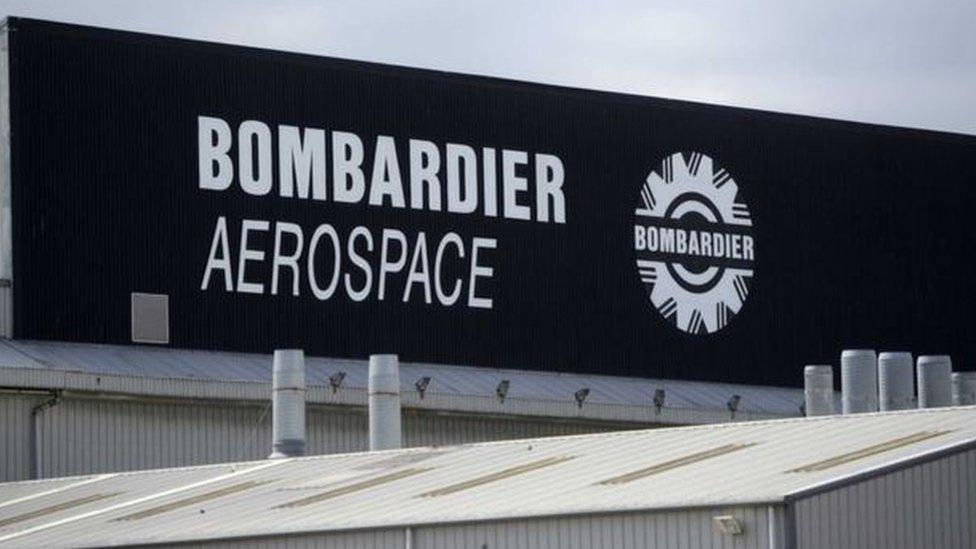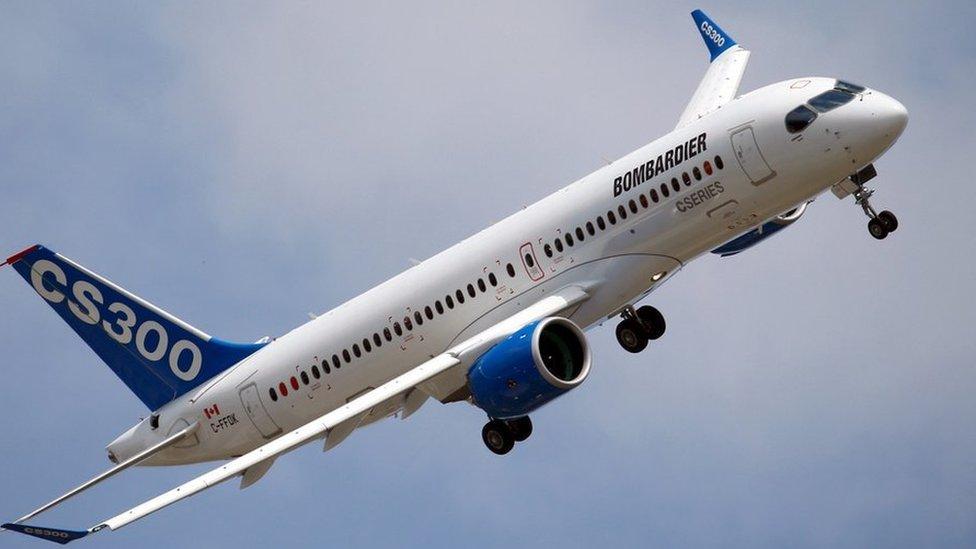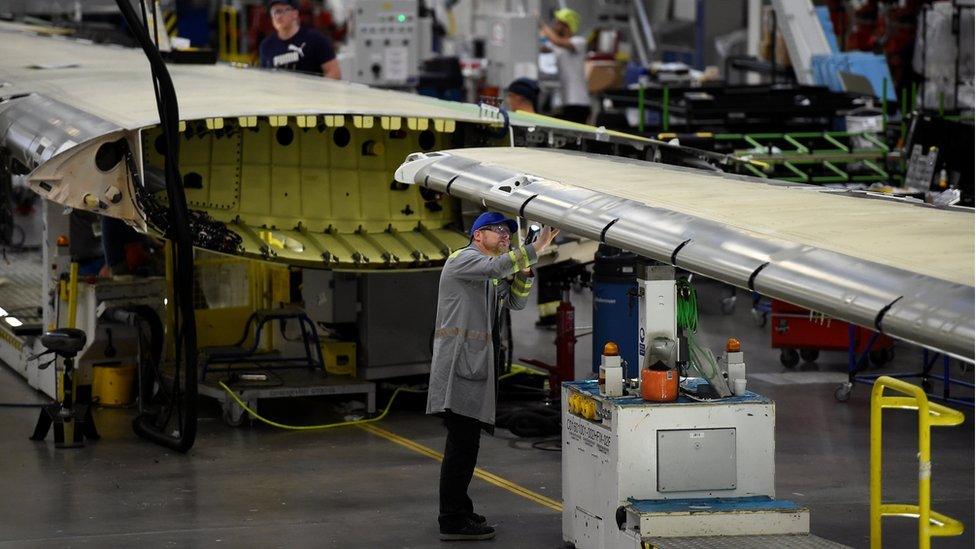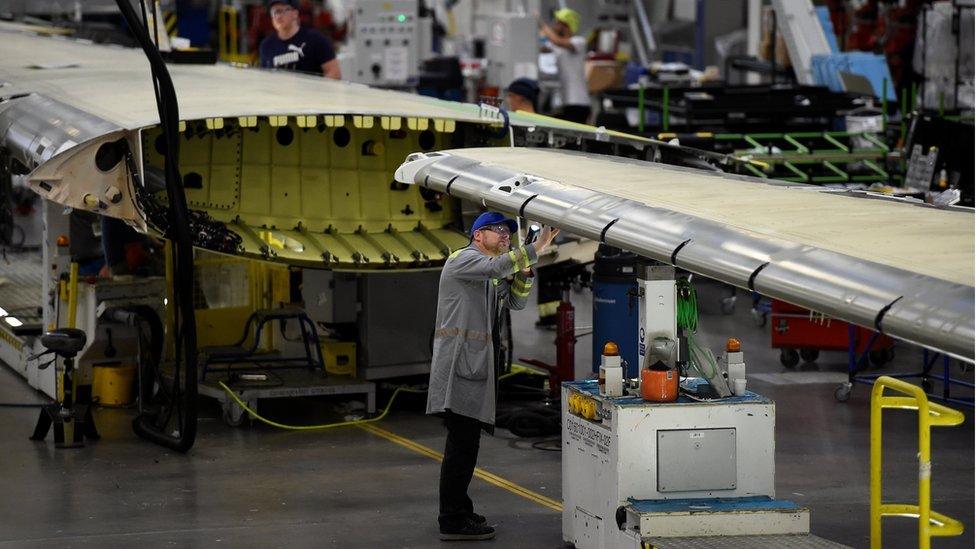Spirit Aerosystems: What's next for Belfast's former Bombardier site?
- Published

When Spirit Aerosystems took over Bombardier's Northern Ireland operations last year, the US company had the mother of all "to do" lists.
Spirit had identified 450 tasks across 22 work streams that were needed to integrate their purchase into their wider aerospace business.
As well as the NI operations, Spirit had also picked up Bombardier facilities in Morocco and Dallas.
This week, Spirit's chief executive, Tom Gentile, and his senior team gave an update on integration and what they expect to do next.
About 65% of those 450 tasks are complete, with the number expected to rise to 75% by the end of March.
In terms of tangible changes, Sam Marnick, the chief operating officer, said some repair work which was normally done at Spirit's base in Kansas is now being carried out in Belfast.
Spirit's 3,000 Northern Ireland staff and its suppliers will want to see more work coming their way and Mr Gentile hinted at some good news in regard to business jets.
The Belfast operation has plenty of experience in this sector, supplying a significant number of parts for Bombardier's Global and Challenger business jets.
Mr Gentile said: "We've won two additional business jet programs which have not been announced publicly, but will be very significant contributors in the future."
It wasn't made clear if that work will definitely be coming to Belfast, but it is the part of the Spirit business with the manufacturing expertise in this sector.
Fast recovery for business jets
Mr Gentile also believes business jets will recover from the pandemic faster than other segments of commercial aerospace.
The major strategic reasons for Spirit to buy the Bombardier assets was to diversify its customer base in the commercial sector.
Spirit's dominant customer is Boeing and, even before the pandemic, Boeing's 737 MAX troubles were having a significantly negative impact on Spirit.
Buying Bombardier in Belfast meant Spirit took over production of the wings for the Airbus A220 and gave the firm a pathway to more Airbus work in the future.
So, unsurprisingly, financial analysts questioning the Spirit team wanted to know about the prospects for the A220.

Mr Gentile said it is "absolutely" expected to be profitable for Spirit within five years, though with the caveat that this will depend on a sustained increase in production rates.
"Airbus has given us the best guidance they can over the next few years," he said.
"But, again, as we see the market recover and air traffic resume, we expect to see the A220 rates get back to where they were projected to be previously. And that will also improve the profitability of the programme.
"So, after the three-to-five-year programme, absolutely we expect the A220 to be profitable."
'Long list of projects'
Mr Gentile said that, overall, he expects the former Bombardier assets will have about $700m (£500m) of revenue in 2021 and he expects the purchased business to grow at approximately 15% annually.
That growth projection was met with scepticism from one analyst who pointed out that Bombardier never managed growth like that in the recent past.
Mr Gentile's reply was that Bombardier was in the long and expensive development phase of the A220 but, now the plane is being delivered, "that's what's going to drive the revenue growth".
Another of his lieutenants, Mark Suchinski, the senior vice president, also made it clear there was another "to do" list, aimed at the A220.
He said he has "a really, really long list of projects on the A220 from site consolidation, overhead reduction, supply chain".
"We have a whole host of projects that we think over the next couple of years will drive some value on that program to help us get to profitability," he said.
Related topics
- Published30 October 2020

- Published25 January 2021

- Published31 October 2019
